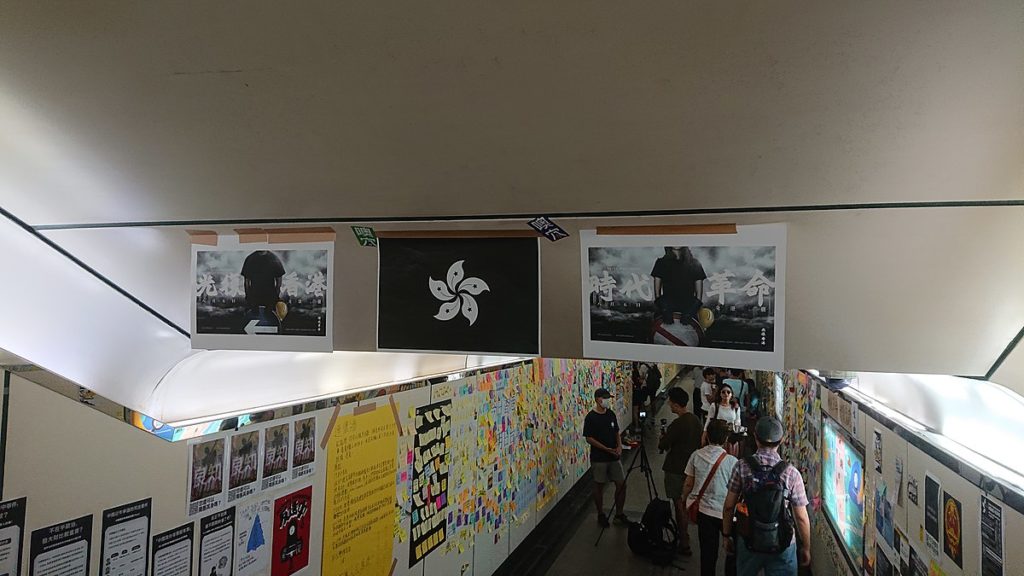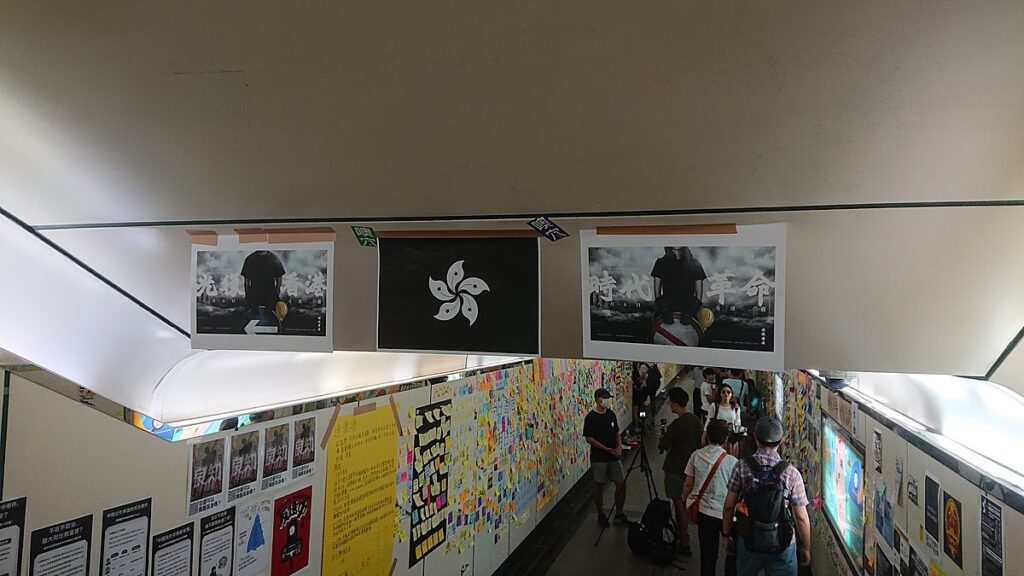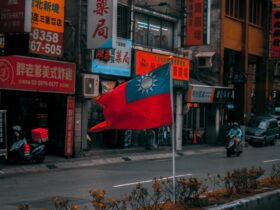
The case of Chan Tong-Kai, a Hong Kong citizen who allegedly murdered his ex-girlfriend in Taiwan in 2018, was used as an example by Chief Executive Carrie Lam’s administration to support the controversial extradition bill that resulted in the ongoing demonstrations in Hong Kong. As ceaseless conflicts between the police force and protestors debilitated the financial hub of China, Lam announced on October 22nd, 2019 that Chan, having expressed regret over his “irreversible mistakes,” would fly to Taiwan to turn himself in. Lam claimed that Chan’s decision would “alleviate the tense atmosphere in Hong Kong” and “bring ease to society.”
Chan’s ultimate release, however, was viewed in a suspicious light by authorities in Taiwan. The government of Taiwan had previously made multiple judicial requests to have Chan handed over to Taiwan to stand trial, arguing that it holds jurisdiction over the murder case. The Hong Kong government, however, did not respond to Taiwan’s call to establish a cooperation mechanism between the two political entities; instead, it made amendments to the Fugitive Offenders Ordinance that would allow extraditions of foreign citizens to Mainland China where suspects will be tried. The amendments’ contentious nature prompted the term “extradition bill” or “surrender-to-China (送中).” The Hong Kong government’s sudden willingness to let Chan turn himself in consequently raised doubts among officials in Taiwan, who argued that Chan’s willingness to surrender in the first place was motivated by political factors. As the two sides dispute over the settlement of Chan, Chan’s conviction remains difficult to be achieved.
Taiwan’s Rationale and Hong Kong’s Dilemma
The administration of President Tsai Ing-wen has prioritized working on the case with Hong Kong using the existing channels between the two governments. One solution proposed by Taiwan is allowing the Ministry of Justice and other government agencies in Taiwan to participate in a joint investigation along with the analogous agencies in Hong Kong. In other words, the government of Taiwan hopes to solidify its self-proclaimed sovereign status by reinforcing its jurisdictional independence. A statement released by the Mainland Affairs Council (MAC), an administrative agency in Taiwan that is responsible for the overall planning and handling of Mainland China affairs, indicated that Hong Kong has signed agreements on mutual legal assistance in criminal matters with 30 countries worldwide, including Australia, and asked “why will it not negotiate and sign such an agreement with Taiwan?”
Such a move would severely challenge Beijing’s “One-China” stance and place the Hong Kong government in a political dilemma. By establishing an agreement or any legislation that constitutes cooperation between Taiwan and Hong Kong, the Special Administrative Region of China would tacitly recognize Taiwan as an entity separate from China, thus violating the PRC’s “One-China” policy.
Hong Kong, the Key to a Residential Election
In the unofficial scheme, the situation in Hong Kong generated much sympathy among young adults in Taiwan, who have been at the forefront of social movements and democratic mobilizations on the self-governed island. To the younger generation, Hong Kong’s descending autonomy mirrors, if not foreshadows, the status of Taiwan as a territory whose political legitimacy is often threatened by Mainland China’s policies. In September, more than 100,000 people marched in Taipei in solidarity with Hong Kong and “Today, Hong Kong; Tomorrow, Taiwan” has become a popular slogan at Taiwanese rallies held in support of Hong Kongers. Moreover, Taiwanese university students have engaged in disputes with exchange students from Mainland China over Lennon Walls — sites that feature messages and posters of encouragement for the Hong Kong protests which have been widely set up on public transportation and in colleges. There have also been cases where Chinese tourists who destroyed Lennon walls were arrested and deported.
Young Taiwanese voters thus lean towards President Tsai, who won re-election in 2020 and has voiced support for Hong Kong multiple times. Political analysts pointed out that her outspoken criticism of China’s role in the neighboring region’s calamities has shed a positive light on Tsai’s image and made up for her relatively weak performance in domestic policies. In fact, surveys conducted in August indicated that Tsai’s popularity rose to 38.2%, an 8% increase from that of the previous month, outperforming her strongest opponent, the populist mayor Han Kuo-yu. The National Policy Foundation, a Nationalist party-based think tank, accused the Democratic Progressive Party (DPP) led by Tsai of delaying justice by rejecting Chan’s surrender to create a favorable situation for Tsai’s run in the upcoming 2020 presidential election.
Future Challenges for Taiwan
The pro-independence narrative that Tsai has promoted since assuming the presidency has triggered Beijing to intensify its pressure on Taiwan and the Tsai administration’s unequivocal support of Hong Kong has only further chilled Beijing-Taipei relations. The unofficial interactions between Hong Kong and Taiwanese people have provoked denouncement from Beijing, which has warned the Democratic Progressive Party to “not intervene in Hong Kong affairs” and “refrain from protecting violent radicals.” However, Taiwan faces challenges greater than heightened tensions with China. While Tsai has promised to offer humanitarian assistance to Hong Kong, Taiwan is ill-prepared to deal with the influx of Hong Kong protestors who would flee to the self-ruled island as political refugees. With a lack of refugee laws and an institution to systematically process political asylums, it is extremely difficult for Tsai to properly provide for Taiwan’s “friends from Hong Kong.”
While the general public of Taiwan often views Hong Kong as a warning to the possible risks of unification with China, the government of Taiwan should think beyond the political realities and take measures that tackle the possible consequences of the months-long protests. Politicians in Taiwan should work on refining drafts of the refugee bill for the long term benefits of people in both Hong Kong and Taiwan. Would legislation that opens doors to refugees increase the risk of foreign — often Chinese — espionage masked by political asylum? Would Taiwan be able to assist the refugees in assimilating? Most importantly, will acceptance of refugees from Hong Kong deteriorate Cross-Strait relations? Such are the questions that the Tsai administration must consider.
The views expressed by the author do not necessarily reflect those of the Glimpse from the Globe staff, editors or governors.







